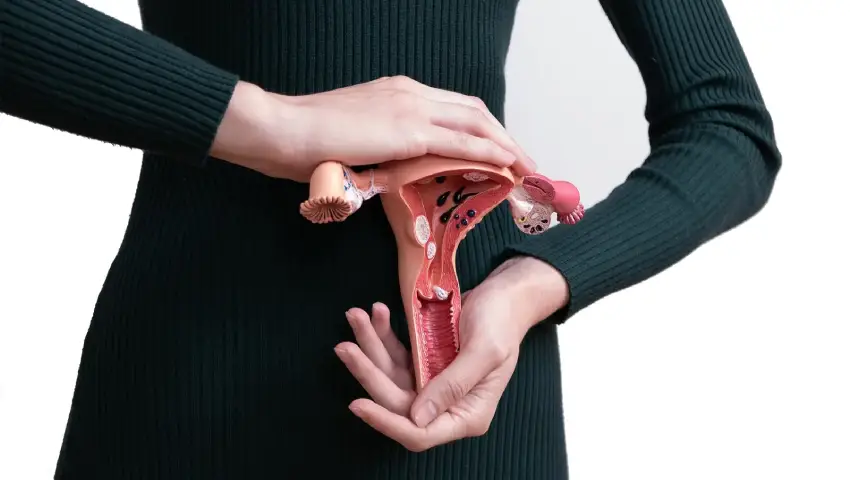Starting a family is a cherished dream for many couples, but the journey to parenthood isn’t always smooth. If you’ve been trying to conceive without success, it may be time to explore fertility treatment. Understanding when to seek help is the first step toward achieving your dream of having a child. At EXCELLA Women’s Wellness Clinic, Dr. Shraddha Galgali, a leading Fertility Specialist in Punawale, Pune, offers personalized care to address your concerns and guide you toward parenthood with compassion and expertise.
Understanding Fertility Challenges:
Infertility is described as the inability to conceive after one year of regular, unprotected intercourse. However, this timeline may vary depending on several aspects:
Age Considerations:
- Under 35: Try for one year before seeking help
- 35-40: Consult a fertility doctor after six months of trying
- Over 40: Seek professional advice as soon as you start trying to conceive.
Medical History:
Certain medical conditions may warrant earlier consultation:
- Irregular or absent menstrual periods
- History of pelvic inflammatory disease
- Known uterine or tubal issues
- Previous miscarriages
- Endometriosis
When Should You Seek Fertility Treatment?
Here are some key signs that indicate it’s time to consult a fertility doctor:
Age-Related Factors:
- Women under 35: Seek help after one year of trying.
- Women aged 35-40: Consult a specialist after six months of trying.
- Women over 40: Seek immediate evaluation and treatment.
Irregular Menstrual Cycles:
- If you have irregular or absent periods, it may indicate ovulation issues like PCOS or hormonal imbalances.
History of Medical Conditions:
- Conditions such as endometriosis, pelvic inflammatory disease (PID), or uterine fibroids can impact fertility.
Recurrent Miscarriages:
- Experiencing two or more miscarriages is a sign to consult a specialist.
Male Factor Infertility:
- Low sperm count, poor motility, or issues like previous surgeries or infections can contribute to infertility.
Unexplained Infertility:
- If no clear cause is identified after initial evaluations, advanced treatments may be required.
Fertility Treatments at EXCELLA Women's Wellness Clinic:
Dr. Shraddha Galgali, the best gynecologist in Punawale, offers modern, affordable treatments:
- Ovulation Induction: Medications to stimulate egg production.
- IUI (Intrauterine Insemination): Direct placement of sperm into the uterus.
- IVF (In Vitro Fertilization): Lab-assisted fertilization for complex cases.
- Laparoscopic Surgery: Minimally invasive procedures for conditions like endometriosis.
What Happens During a Fertility Consultation?
At EXCELLA Women’s Wellness Clinic, Dr. Shraddha Galgali ensures a comprehensive approach to infertility treatment in Punawale, Pune:
- Detailed Medical History Review: Understanding your health and lifestyle factors.
- Diagnostic Tests: These may include hormone tests, ultrasound scans, semen analysis for men, and tubal evaluations for women.
- Personalized Treatment Plan: Based on your diagnosis, treatments like ovulation induction, IUI (Intrauterine Insemination), IVF (In Vitro Fertilization), or advanced techniques like ICSI may be suggested.
Why Choose Dr. Shraddha Galgali for Fertility Treatment in Punawale?
If you’re searching for the best gynecologist in Punawale to guide your fertility journey, Dr. Shraddha Galgali at EXCELLA Women’s Wellness Clinic is a trusted name. Here’s why she’s Pune’s top choice for infertility treatment in Punawale:
Expert Fertility Treatments:
She offers advanced services, including:
- IUI: Enhances conception by placing sperm directly into the uterus.
- IVF: Combines egg retrieval and fertilization in a lab, then transfers the embryo into the uterus.
- ICSI: Injects a single sperm directly into an egg to improve fertilization.
- Fertility Preservation: Egg and sperm freezing for future family planning.
Experienced and Skilled:
- With 8+ years of experience, Dr. Galgali specializes in treating complex infertility cases and high-risk pregnancies.
Modern Clinic with Advanced Technology:
- Her clinic, EXCELLA Women’s Wellness Clinic, offers state-of-the-art diagnostics and treatments for higher success rates.
Compassionate and Personalized Care:
- Dr. Shradhha Galgali is known for her patient-centric approach, offering emotional support throughout the fertility journey.
Conveniently Located in Punawale, Pune:
- EXCELLA Clinic is easily accessible for Pune residents, offering stress-free visits for consultations, tests, and treatments.
Taking the First Step Toward Parenthood:
If you’re concerned about your fertility, don’t hesitate to seek professional help. Early intervention can significantly improve your chances of success. Dr. Shraddha Galgali and her team at EXCELLA Women’s Wellness Clinic are committed to helping you achieve your dream of parenthood. Remember, every fertility journey is unique. By consulting with a specialist, you’re taking an important step towards understanding your options and finding the right path for you.
To learn more about fertility treatments or to schedule a consultation with Dr. Shraddha Galgali, contact EXCELLA Women’s Wellness Clinic today. Let us help you start your family with compassionate, expert care right here in Punawale, Pune.





